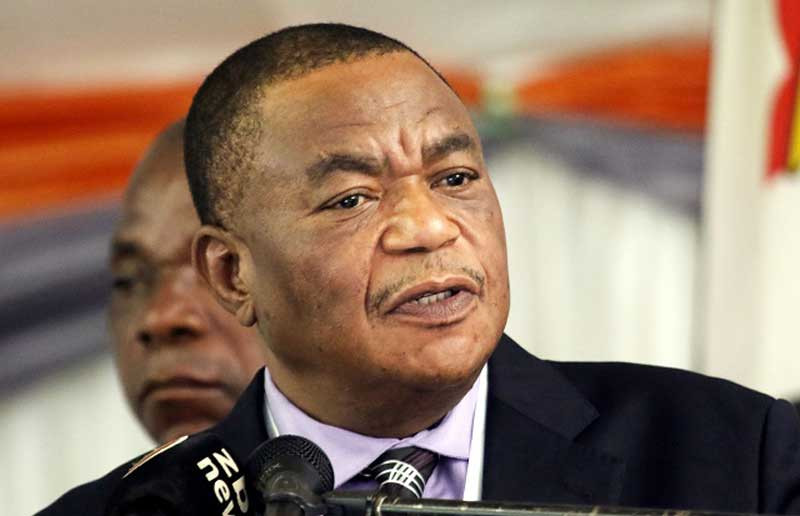
AUDITOR-GENERAL (AG) Mildred Chiri has exposed the rot in the country’s health sector, where there is serious understaffing and shortages of equipment with no ambulances having been procured between 2019 and 2020.
According to Chiri’s audit report on the appropriation accounts, finance and revenue statements and funds accounts for 2021, Zimbabwe is facing a serious health crisis.
Her report came at a time when South Africa is accusing Zimbabweans of straining the neighbouring country’s healthcare facilities.
In her report, Chiri said the Harare Government Dental Centre, which is the country’s largest referral centre, is operating below capacity with insufficient human resources and equipment.
“I noted that delivery of dental services was negatively affected as the health institution was operating below capacity. The health institution did not have sufficient human resources, financial resources, infrastructure and equipment,” Chiri said, referring to the dental centre.
“During my visit to the health institution, patients were being turned away because of the unavailability of dental equipment to perform the necessary dental procedures.”
The facility, which offers oral health services to patients and provides training and internship to dental technicians, therapists and assistants, requires eight dental chairs and eight dental mobile carts, but it only has one of each.
It also requires four autoclaves (sterilising equipment), four air compressors for dental procedures and two dental X-Rays, but it had none. The dental centre also has no water and power back-up.
- Sakunda hail SA stadia tour
- Rufaro Stadium refurb gathers momentum
- Huge incentives for DeMbare, Bosso
- Mbavara eyes to resurrect Matavire’s music legacy
Keep Reading
An analysis of human resources showed that in 2019, employees in posts were 63% of the establishment but the figure decreased to 53% in 2020.
The health institution was offering training for dental therapists and assistants, but the number of students had significantly declined, a situation that may see the country having no therapists.
“The institution should be training 30 therapists each year, yet in 2019, 15 therapists were trained and in 2020, 10 therapists were trained ... Service delivery to the citizens was not being effectively rendered as there is a limited number of patients being assisted. The country may end up with no therapists if annual numbers of trainees continue to decline,” Chiri said.
Management at the institution claimed that the Health ministry was engaging the Finance ministry for financial assistance.
Apart from that, a public private partnership between Nyanga District Hospital and Nyaradzo Funeral Assurance Company was not regularised and remain a verbal agreement, Chiri noted.
“Previously, I reported that Karoi district took a long time to submit medical aid claim forms to medical aid societies. Marondera, Bindura and Karoi hospitals had medical aid claim forms for Premier Service Medical Aid Society and National Social Security Authority that were rejected and had not been followed up.
“In 2018, I reported that Masvingo and Gweru provincial hospitals failed to support creditors’ balances as they did not maintain creditors records. The situation is still the same,” she said.
Chiri exposed unsupported expenditure at 11 health institutions visited in 2018 which incurred expenditure amounting to $160 295 that was not fully supported by source documents such as requisitions, invoices or receipts as well as goods received notes.
Nine health institutions visited in 2018 incurred expenditure amounting to $143 154 without seeking competitive quotations and subsequently compiling comparative schedules.
Also, the health institutions had no service level agreements in cases where acquisition of goods and services was from a sole supplier.
For the financial year ending December 31, 2020, the head office, Harare Dental Centre and Government Analyst Laboratory did not maintain complete and proper accounting records relating to the Health Services Fund.
The report said the segregation of duties in the accounts department was not observed during the period under review at the Government Analyst Laboratory and Harare Dental Centre.
“The officer who was responsible for receiving revenue was the one receipting, banking, updating the cashbook and preparing the bank reconciliations. Furthermore, at Harare Dental Centre, the officer who was responsible for approving requisitions was also responsible for certifying and passing vouchers for payments,” Chiri said.
The crisis in the health sector is likely to escalate further with Zanu PF legislators pushing for enactment of the Private Voluntary Organisations (PVOs) Amendment Bill which will likely chase away donor funding from the sector.
Finance minister Mthuli Ncube allocated only 14% of the 2022 national budget to the Health ministry, leaving donors to fill in the gap.
Health experts who spoke to NewsDay yesterday said the health sector would be crippled if non-governmental organisations (NGOs) were banned as the sector gets almost 85% of its funding from NGOs.
Medical and Dental Private Practitioners of Zimbabwe president Johannes Marisa said Zanu PF’s utterances were just political banter as Zimbabwe could not survive without NGOs.
“That is merely political rhetoric. There is no country that can run without NGOs, which remain very important because they contribute very significantly to the growth of the health sector. Donors are the ones that also give incentives, especially in the rural areas. We cannot afford banning these NGOs in a developing country, especially here in Zimbabwe,” Marisa said.
Zimbabwe Nurses Association president Enock Dongo said: “Let’s put politics aside and let’s be realistic. Looking at our economy in Zimbabwe, there is no way we can sustain the Health ministry without the help of donor funds and NGOs.
“It will not be fair for political reasons to talk about the donors that are in the Health ministry as they are apolitical. We haven’t heard of any donor that is pushing a political agenda as far as the Ministry of Health is concerned. These donors are only playing social responsibility roles, they are even assisting in rural areas,” Dongo said.
Health professional Setfree Mafukidze tweeted: “Nurses in Zimbabwe are paid retention allowances by NGOs because the government cannot afford that. 85% of the Health ministry is donor-funded.”
Health ministry spokesperson Donald Mujiri said: “Donors contribute a lot to the health sector. The Ministry of Finance can give you an accurate figure on how much they contribute.”











